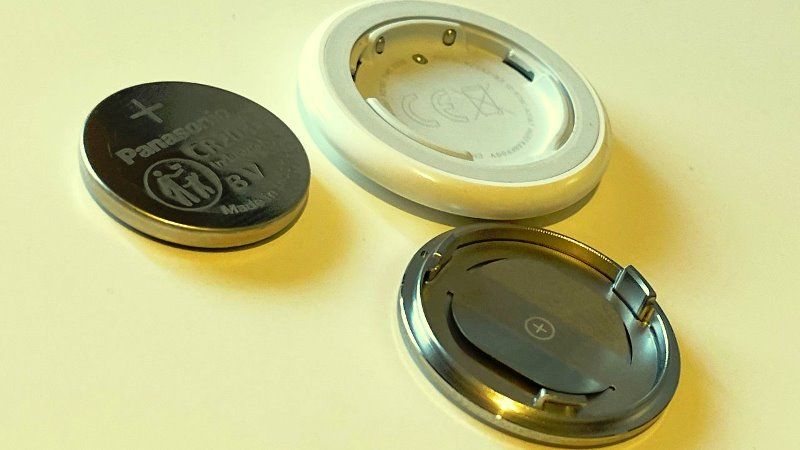AirTags are small spherical accessories, slightly larger than a button, which can be traced via Apple’s “Find My” app. The same application has been helping to find iPhones, MacBooks, and other (lost) Apple devices for years. The AirTags have an autonomy of about a year, but when the time comes to replace the battery, some models will have to be avoided. In that sense, check out this guide that explains what type of battery AirTag uses.
AirTag Battery Type (2023)

AirTag uses a CR2032 button cell battery and according to the Cupertino company, it has an estimated duration of over a year, which can be easily replaced independently by also discovering the duration and status to understand whether or not it needs to be replaced directly from your iPhone that will tell you when it’s time to change it.
So, conventional CR2023 batteries can be used as replacement batteries on AirTags. But when it’s time to change the battery, Apple suggests not using batteries with a “bitter coating”.
Round-type CR2032 batteries are easy to replace, and it is possible to replace the button cell battery in various devices all too easily, which poses potential problems for those with children (especially very young ones and newborns). In fact, they often swallow them, risking triggering a chemical reaction in the esophagus that can cause burns and other damage.
For this reason, some manufacturers have made button cells with a very bitter-tasting coating (a ring-shaped layer of a non-toxic compound called Bitrex) to prevent them from being swallowed.
In a support document with guidance on how to replace the AirTag battery, Apple explains that “CR2032 batteries with bitterant coatings might not work with AirTag or other battery-powered products, depending on the alignment of the coating in relation to the battery contacts.” It is therefore advisable to use batteries without this bitter coating, taking care to keep AirTags out of the reach of children and leave batteries of this type in plain sight.
Duracell reports that hundreds of cases of children swallowing lithium coin batteries occur each year, half of them under the age of 6. Devices such as remote controls, toys, and car keys are getting smaller and smaller and therefore increasingly require lithium coin batteries. If a lithium coin cell battery is swallowed, and not treated promptly, it can become stuck in the esophagus, causing a harmful chemical reaction that can be fatal within two hours. If you suspect that a child has swallowed a battery, go to the hospital immediately.
That’s all there is to know about what type of battery AirTag uses. In the meantime, do not forget to check out similar types of AirTag Guides here: How to Find Lost AirTag in Car, and How to Change Battery of AirTag.
